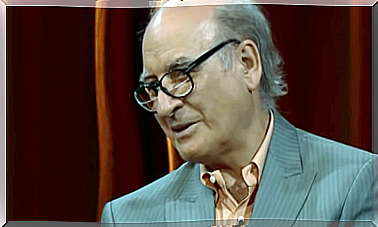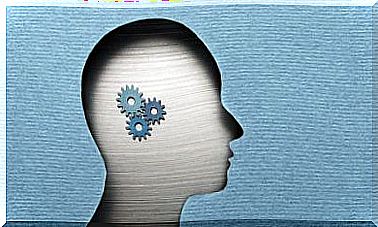Cognitive Health: Thinking Well To Be Happy

Think well to feel better. Increase control over your thoughts to process reality with more serenity. Deactivate irrational ideas so as not to fall into the traps of the mind … Cognitive health is this and much more. It is about practicing psychological self-care to become a careful gardener of everything that happens inside you.
Cognitive psychology has been teaching us for decades how each event that happens in the brain affects quality of life. Perception, memory, attention, thoughts, reflection, language, problem solving … All these events directly mediate how we feel and handle our complex daily life.
It never hurts to enable ourselves in this cognitive learning to enhance our well-being, self-control and ability to achieve. Understanding how we think reverses directly in any aspect of our existence.

Thinking healthy, our pending account
Surely at some point you have fallen into the temptation to think about your future self facing its worst destiny from a certain starting point. An exam, a medical test, a problem at work, an argument with your partner … Everything is going to go wrong, everything is a disaster! -you say-. Suddenly, you find yourself building a castle of fatalistic thoughts that further fuel discomfort. Why do you do it? Why does the brain have this tendency to always think the worst?
The neurological roots of negativity exist and serve a logical purpose: to focus on threats in order to react to them. Our brain is not worried about us being happy, it just wants us to survive. This explains why it is so difficult for us to feel good, to enjoy a more constructive, hopeful and even positive approach.
Now, does this mean that we are ostracized from unhappiness? Absolutely. As the psychologist and Nobel laureate Daniel Kahneman explains, learning to think better and deactivate our irrational mental patterns is possible. His book Think Fast, Think Slow is a clear example of many of the pillars of cognitive health.
Definition of cognitive health
Cognitive health is the ability to think, reason, reflect, remember and make decisions in a healthy way so that they revert to our well-being. It is good that all these higher functions work in harmony to promote balance, happiness and adaptation to each event that life brings us.
In this way, research works, such as those carried out at the Mount Sinai School of Medicine, point us to something very relevant in this regard. Today we know that the network formed by beliefs, attitudes and thoughts play a very important role when it comes to recovering from illness. What is often not counted is that support groups are created to increase the chances of success of an intervention or medical treatment, in addition to of course to make them feel better.
How can I take care of my cognitive health?
A fact that we are increasingly clear about the brain is that its plasticity, that is, the ability of the brain structure to modify and vary with learning, is immense. We can promote our cognitive health by learning to think differently, substituting some thoughts for others, also being aware of those patterns that feed discomfort.
These are some simple keys to begin to achieve it.
Cognitive biases, promoters of constant suffering
A cognitive bias is a shortcut, an inaccurate judgment by which we interpret reality. They are unconscious errors of reasoning that distort our view of the world. An example of this could be to think that just because someone is attractive, all their human virtues will be noble and equally beautiful.
Biases are also generalizing, thinking dichotomously (things are good or bad), assuming that only we are right and that others are wrong or that we do not harbor any prejudice, that we process reality truthfully, without filter or any distortion.
To take care of our cognitive health it is essential that we become aware that our mind thinks and reasons based on this type of heuristics.
A mind attentive to the environment, sensitive at the same time to internal needs
External focus and internal self-care. Being sensitive to what is happening inside us, but at the same time keeping the focus on the outside as well.
All this seems complicated, it is true, but to promote and enhance our cognitive health it is necessary to make constant constant trips from the inside to the outside. This means having to put into practice several skills:
- We must learn to develop our approach, that is, to direct our attention towards what is truly important. You have to educate your gaze and mind towards priorities.
- Likewise, it is necessary to implement self-care activities. What does this mean? It involves making contact with everything that happens in our mental garden (what worries me, why do I have this thought, why am I not looking for a solution to this problem?).

Cognitive health is thinking slowly and consciously
We return once again to the successful contributions of the psychologist and Nobel Prize winner Daniel Kahneman. Something that points out to us in their work is that people have become accustomed to thinking quickly, automatically, intuitively and unconsciously. We do it this way because life goes by at high speed and we are forced to respond instantly.
This causes us to live on automatic pilot, with little control of anything and raising the risk that anxiety and irrational worry take the controls of our existence. It’s like being a copilot in a car whose driver takes us wherever he wants at full speed. It is not the right thing to do.
If we really want to improve our cognitive health, we must start to slow down. Let’s take control of each thought by calming ourselves, being more reflective and avoiding acting on simple impulse. Thinking in a meditative way helps us to have greater perspectives of reality to be more select and careful.
This will allow us to regulate stress and have a mind more prepared to make decisions and thus shape the life we want and deserve. Let’s get started today.









